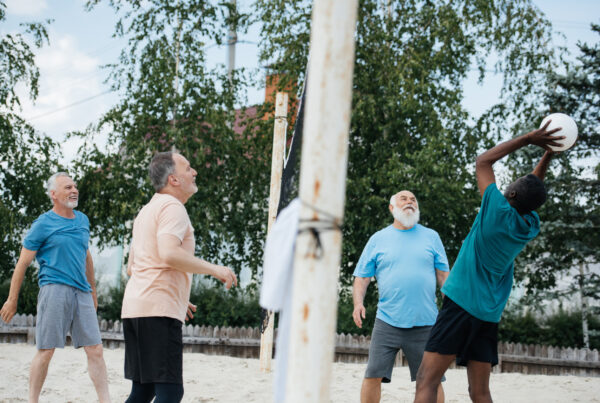”Q: I love to exercise and MWi has given me some great ideas. My only concern is injury, how do I avoid getting hurt?
Reading time: 5 Minutes
MWi Hack:
- Learn how to prevent injuries to help you stay active.
MWi Summary:
-
- You can prevent sport injuries in many different ways:
- Take time for a proper warm up
- Cross-train
- Drink plenty of water
- Don’t skip rest days
- You can prevent sport injuries in many different ways:
1. Take time for a proper warm-up
2. Don’t overestimate your abilities
Just because you were able to execute that heavy lift when you last trained a month ago or were able to run a 7-minute mile five years ago, doesn’t mean you are able to today. Be realistic about your current abilities and start out slowly if you’re just getting into exercising or if you’re starting up a new program. A couple of days at a lower intensity while you figure out where your training sweet spot is will do much less to impede your eventual performance than starting off too hard, injuring yourself, and having to take several days or weeks off to recover.
3. Cross-train
Changing up your exercises, when done carefully and with your physical limits in mind, can actually benefit your training instead of hurting it. Our muscles get used to the same moves if performed over and over again, potentially leading to overuse injuries. Also, if you perform the exact same routine day in and day out, you may get overconfident and attempt to use too much weight or let your attention wander, which can be dangerous. By switching up your training routine every so often, or even rotating the types of training you do every other day, you will engage and strengthen more of your muscles, giving you a better overall workout and improving your strength.
4. Learn proper technique
If you’re beginning a new workout regimen, take the time early on to learn proper form. This may mean working with a professional for a few sessions. Improper form, especially in weightlifting, can cause serious injuries that will cause you to halt your training. Every sport can benefit from a little expert assistance, including aspiring runners, swimmers, or tennis players. Take things slowly, learn how to properly execute the moves, and your hard work will pay off down the road.
5. Eat a balanced diet
A proper diet, and eating at well-timed intervals around training, is just as important for your health and exercise performance as is the training you do. Eating a light, balanced meal or snack two hours before training will help fuel your performance, as will a snack or meal shortly after a workout. Protein is great for rebuilding muscle fibers that may have been put through the ringer during your routine, so make sure it’s part of your post-workout noshing.
6. Drink plenty of water
Just like with food, exercising when improperly hydrated can lead to injury. As you exercise, you sweat, releasing not only water from your body but also electrolytes that are important for brain and body function. But, just as not drinking enough water can be a bad idea, so can drinking too much, as that sloshy feeling in your stomach during a workout can leave you nauseated and distracted. Try to fit in 16 ounces of water about two hours prior to a workout, then keep a bottle of water with you for sips every 15 minutes or so during exercise. Follow up your workout with another 16 ounces within two hours of finishing to replace lost fluids.
7. Dress for your sport
One of the leading causes of sports injury is being improperly attired for the activity being performed. This could mean everything from wearing ill-fitting, old, or incorrect shoes for your chosen sport to wearing clothing that’s loose and baggy, causing you to trip. Wear clothing that is as close-fitting to your body as you are comfortable with, but not too tight that it hampers your movement. Make sure to research the proper type of shoe for your activity – Never wear running shoes into the weight room, for example! – before starting. If possible, get professionally fitted for your shoes.
8. Listen to your body
If something hurts, stop. Pain is not gain; pain is a sign that you’re either doing something wrong or you’re doing something your body isn’t ready for yet. Stop, evaluate what you did to cause the pain, and either adjust your form or take a rest. You’re better off backing down from a pain-inducing move than pushing through it and risking injury. If necessary, consult with a professional or coach to see if there’s an adjustment you need to make in order to avoid pain.
9. Don’t skip rest days
When you’re actively chasing a fitness goal, it can seem counter-productive to take a whole day (or two!) away from the gym to rest. Rest days are, in fact, exactly the opposite: They allow your body to recuperate and your muscles to rebuild, which contribute to increased strength and growth. One full rest day every 3 to 5 workout days is generally recommended. Take more time off if you’re experiencing excessive soreness or pain, or you just feel worn down. You’re better off taking an extra day to rest now than risking training while overtired and injuring yourself.
Starting a new exercise journey is a positive step toward overall health and wellness. Take your time, take the above precautions, and have fun while exploring something new.






